Federal and State Environmental Policy on Air Pollution in Texas
VerifiedAdded on 2020/04/13
|6
|1265
|42
Essay
AI Summary
This essay delves into the contentious issue of air pollution and environmental policy, specifically focusing on the state of Texas and its ongoing conflict with federal regulations. The paper highlights the federalist structure of the United States and how it impacts environmental policies, particularly regarding air pollution permits. It examines the controversial flexible air pollution permit system in Texas, which allows facilities to exceed individual emission limits as long as the overall emissions remain within federal standards. The essay discusses the EPA's challenges to this system and the ensuing political disputes. It explores the significance of air pollution in Texas, given its high concentration of refineries and the implications of the state's contribution to the problem. The paper then analyzes various policy options, including abolishing flexible permits, imposing federal air quality standards, and transitioning from a carbon tax to a cap-and-trade system. It considers the economic implications of each approach, weighing the potential financial detriments against the benefits of improved air quality. The essay concludes by emphasizing the need for collaboration between state and federal governments to address environmental concerns effectively, prioritizing both economic and environmental feasibility.
1 out of 6
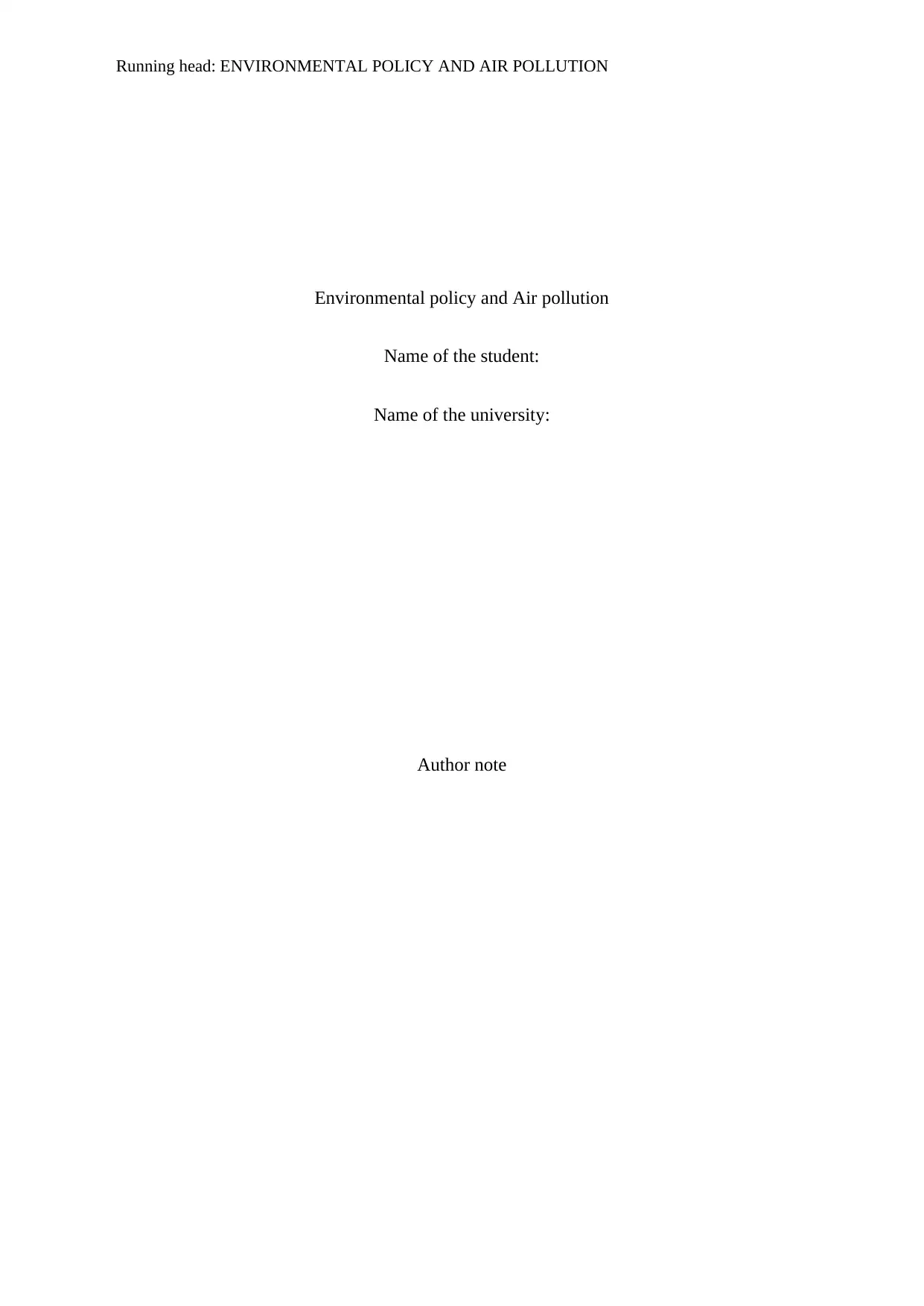
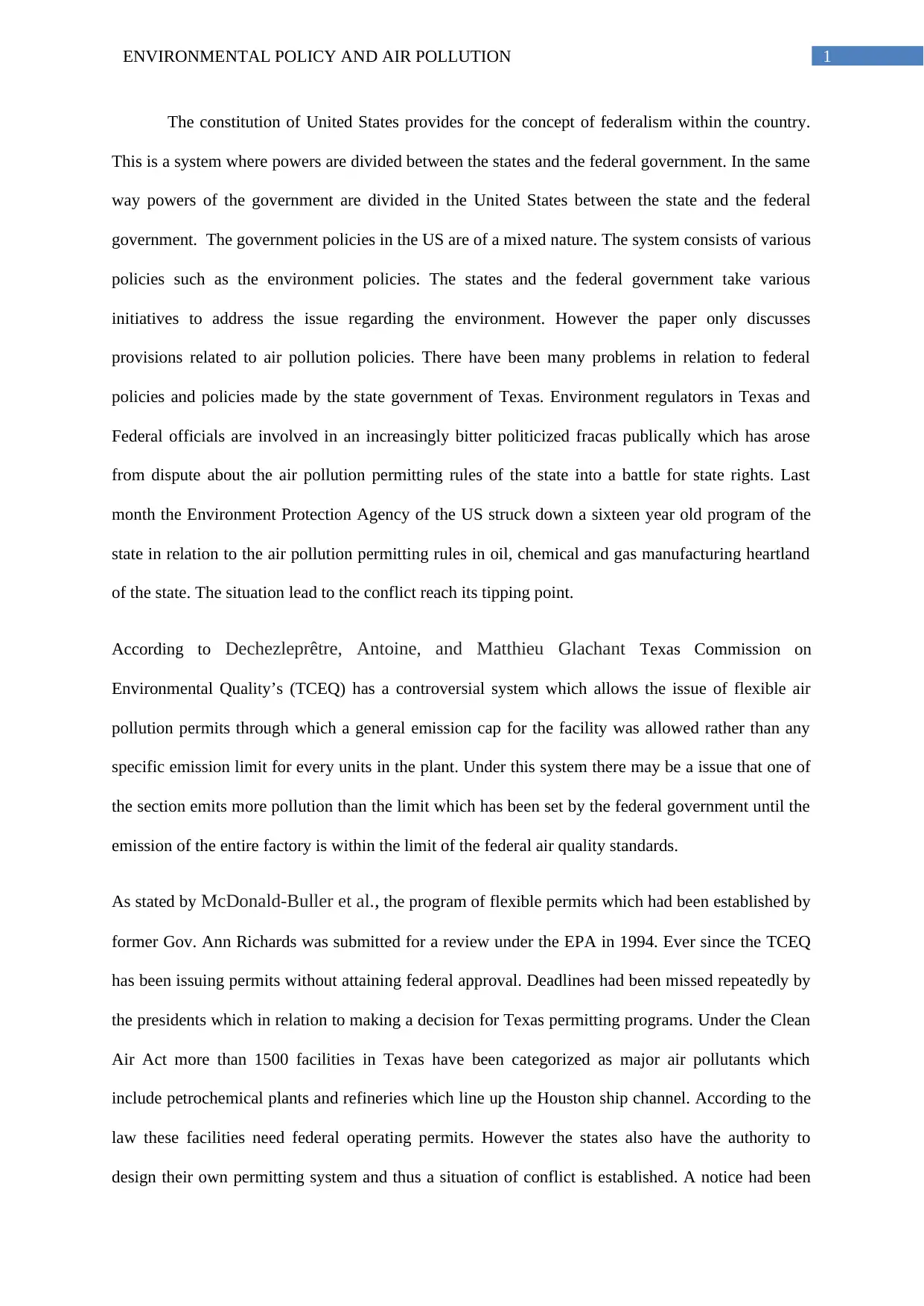
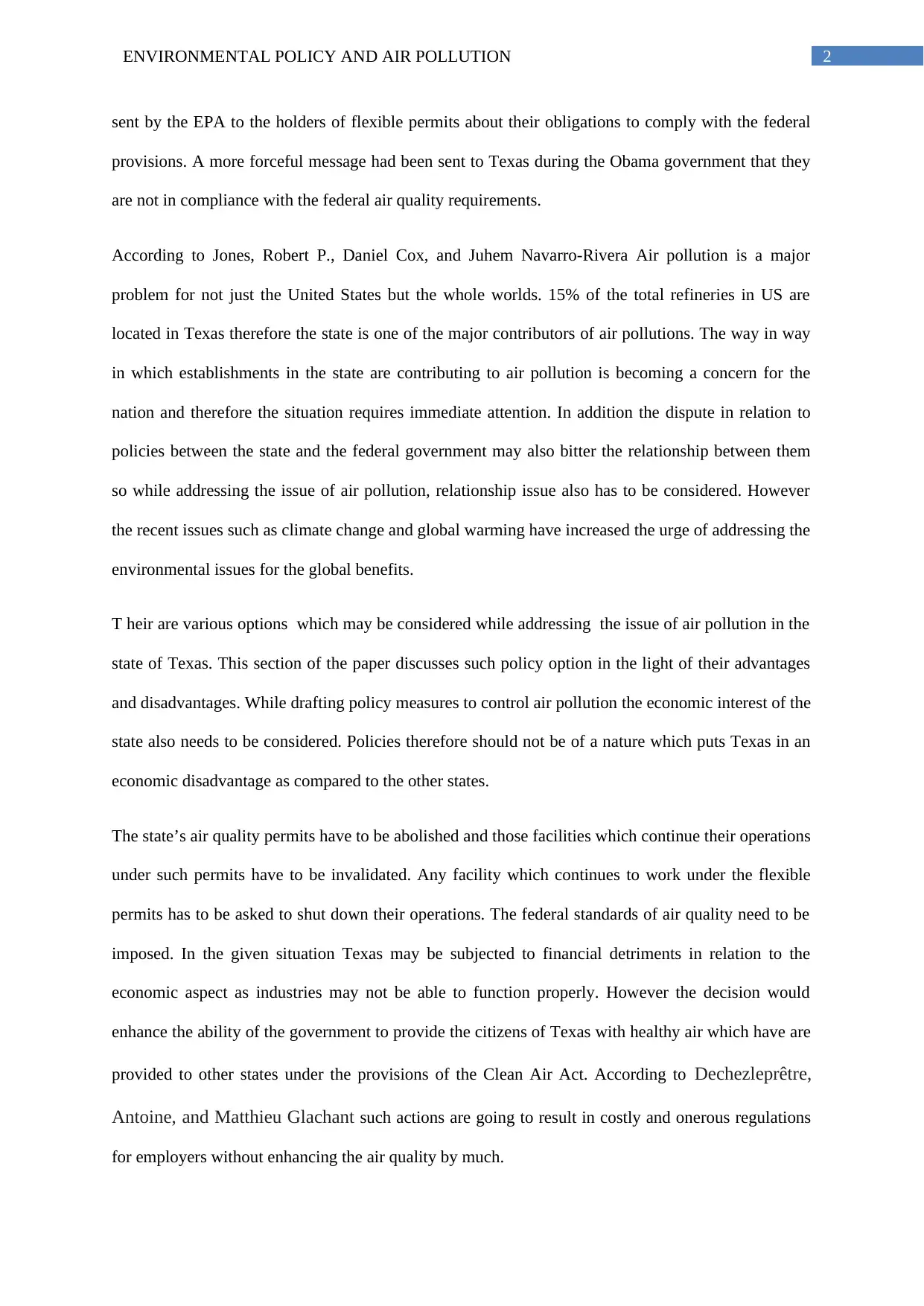

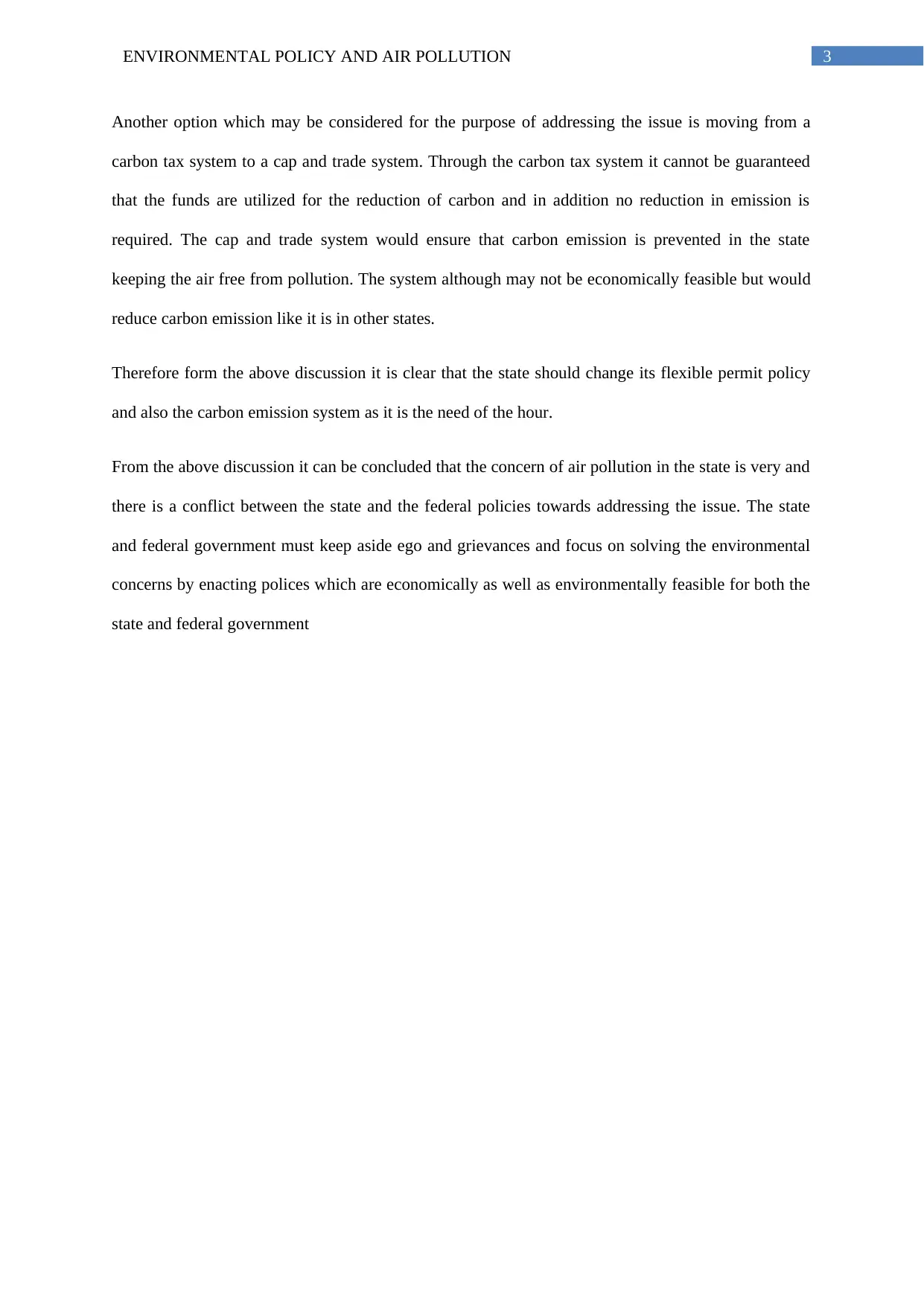
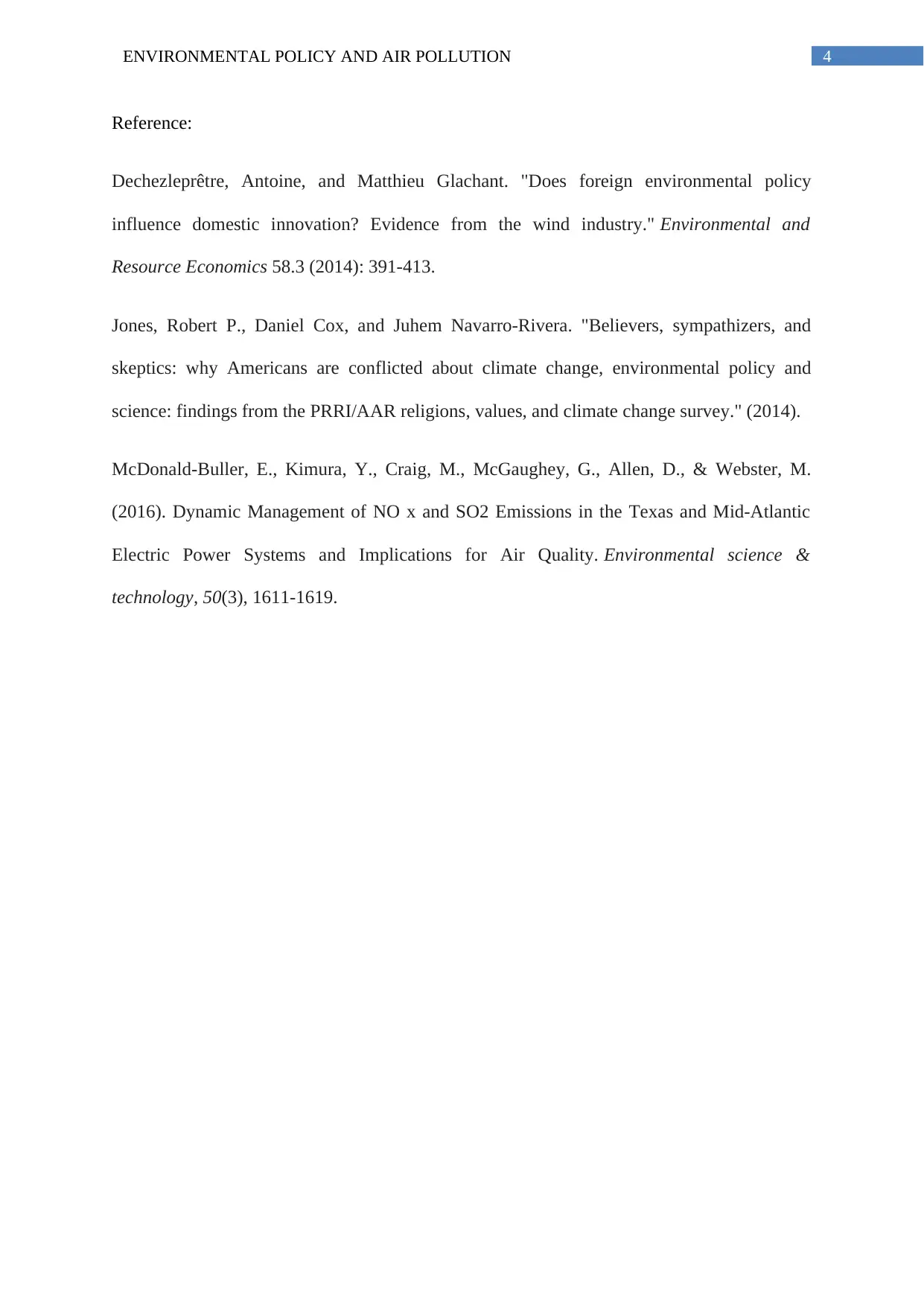
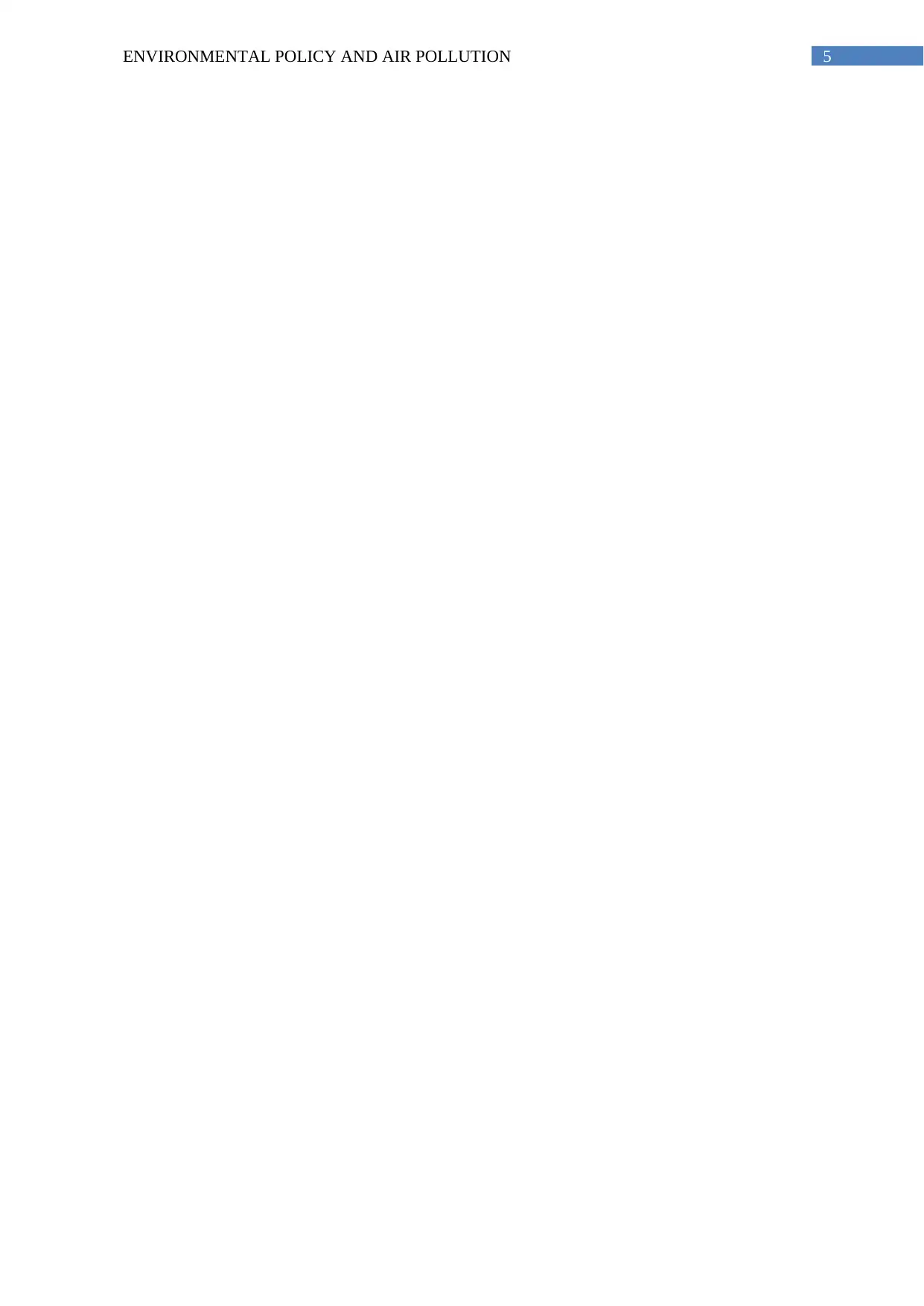






![[object Object]](/_next/static/media/star-bottom.7253800d.svg)